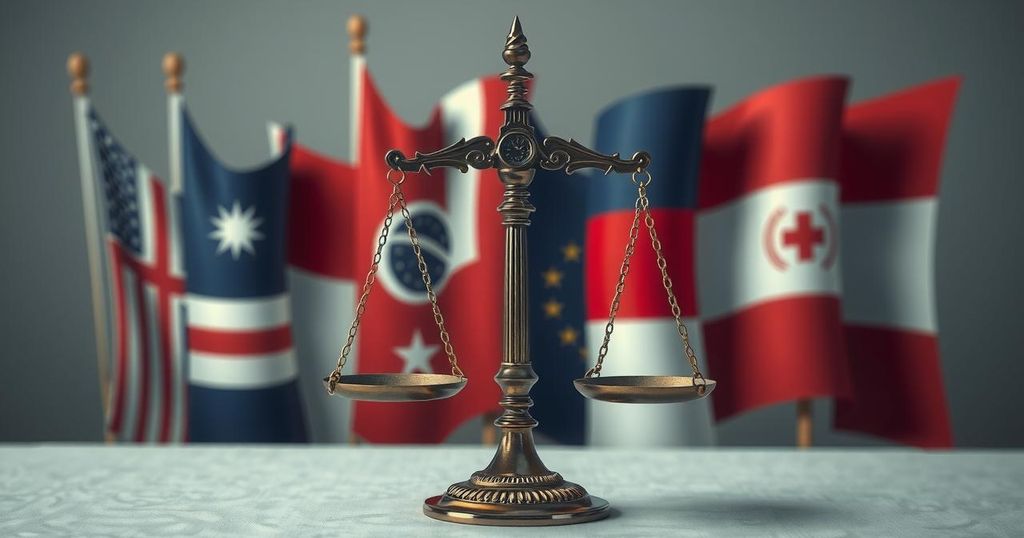U.S. Concerns Grow Over Potential Leftist Victory in Ecuador

The Ecuadorian runoff election is crucial for U.S. interests as a Correa-aligned candidate gains traction against the current president. With nearly tied votes, the outcome hinges on indigenous voters. Noboa faces pressure to address crime and energy issues to secure victory against leftist influence.
Ecuador’s recent elections pose significant concerns for the United States and democratic interests in Latin America. The leftist populist party, associated with former president Rafael Correa—an ally of Venezuela—is positioned to win the upcoming runoff on April 13. Surprisingly, current president Daniel Noboa, who is expected to perform well, secured only 44.2% of votes, closely trailing Correa-backed candidate Luisa Gonzalez at 43.9%.
The runoff may heavily depend on third-place candidate Leonidas Iza and the indigenous Pachakutik party, who collectively hold significant sway with their 5.3% of votes. The dynamics suggest a potential alignment with Gonzalez’s campaign, highlighting the electoral stakes for the U.S. administration amidst fears of leftist governance in Ecuador.
A win for Gonzalez would likely shift Ecuador sharply leftward. She is a staunch ally of Correa, known for supporting what is termed the “socialism of the 21st century”—a political movement associated with Venezuela and Cuba. Political analysts foresee Gonzalez’s victory as a narrow possibility, especially with the backing of indigenous voters that traditionally oppose Correa’s faction.
Noboa must confront pressing issues like escalating drug-related violence and an ongoing energy crisis to secure his position. January statistics displayed record high homicide rates in Ecuador, creating a pressing need for effective governance. His strategy should focus on courting indigenous support and demonstrating swift action against crime.
The outcome of the April runoff could lead to a resurgence of Correa’s controversial policies, which had previously fostered an environment of crime and corruption. Despite some Ecuadorans nostalgic for Correa’s term, they may overlook the broader implications of his governance, which had destabilizing effects at the time. Should Correa’s candidate prevail, it would present substantial challenges for U.S. foreign policy in the region.
In summary, Ecuador’s upcoming runoff election is pivotal, with potential repercussions for both U.S. interests and regional democracy. The close race between Noboa and Gonzalez reflects the deep political divisions and the impact of corruption and violence on electoral choices. Noboa must act decisively to improve governance and maintain support to avert a leftist resurgence led by Correa’s allies.
Original Source: www.miamiherald.com







